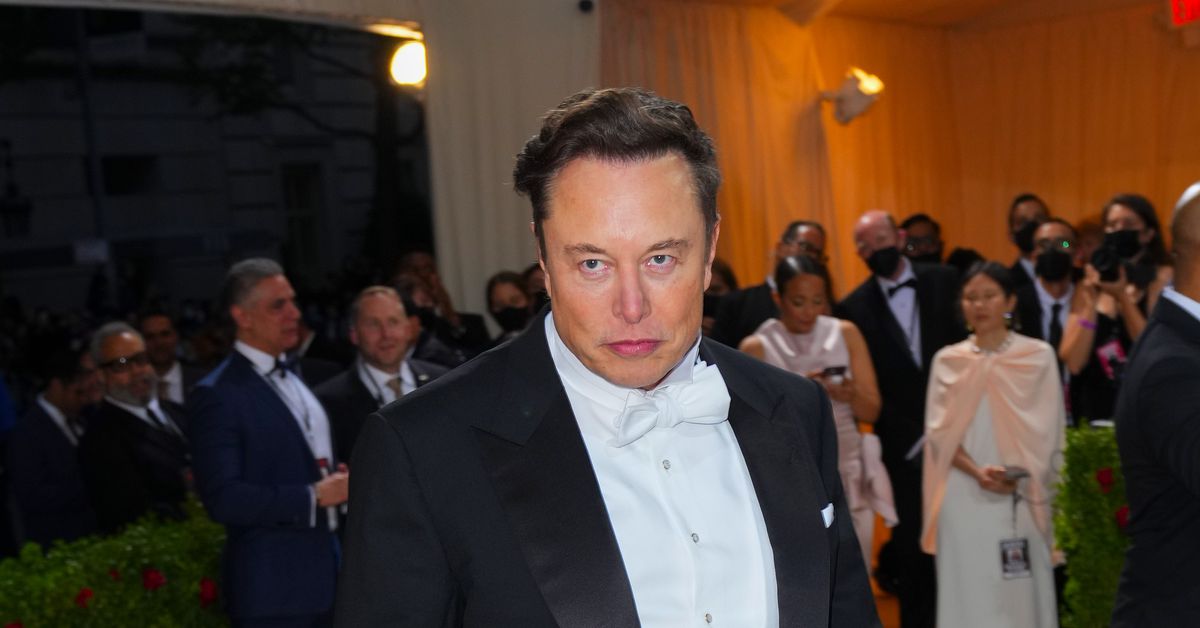
Elon Musk has millions of critics — and dedicated fans — and nowhere is that clearer than on Twitter. Since Musk, who is the world’s richest person and the CEO of Tesla, SpaceX, the Boring Company, and Neuralink, announced plans in April to buy the social media company, the debate has intensified around whether he’s a genius who’s saving the world or merely a crass billionaire with a big platform. And more people, including his own employees, have begun raising questions about the increasingly blurry line between his Twitter persona and his role as the leader of several major companies.
Last Thursday, SpaceX reportedly fired at least five employees involved in writing a letter to company executives condemning Musk’s recent behavior — particularly on Twitter, where he has been interacting more frequently with right-wing politicians and pundits. In recent months, Musk’s Twitter activity has included posting a meme targeting Twitter executive Vijaya Gadde, making light of an allegation that he had sexually harassed a SpaceX flight attendant, and mocking Bill Gates’s appearance. The letter focused on Musk’s behavior on Twitter, where he has been increasingly vocal about US politics and his criticisms of the Democratic Party, which he says has swerved too far to the left.
“Elon’s behavior in the public sphere is a frequent source of distraction and embarrassment for us, particularly in recent weeks,” the letter reads. “As our CEO and most prominent spokesperson, Elon is seen as the face of SpaceX — every Tweet that Elon sends is a de facto public statement by the company.”
The firings followed a Verge report on Thursday about the letter, which represents the first time such a document from employees to Musk has surfaced, and marks one of the most public concerted actions to date against Musk from employees of one of his companies. Musk already has enormous influence, but now that he is on track to own Twitter, one of the largest social media platforms in the US, his voice will have even greater reach. It also means that his ability to influence what people say about him will likely be greater too. The SpaceX letter, and the subsequent firing of the employees involved with it, shows there’s a growing tension between how Musk presents himself as an individual — albeit a very public individual — and how his employees feel represented, or misrepresented, by their CEO.
One of the action items proposed by employees in the letter is to “publicly address and condemn Elon’s harmful Twitter behavior” and “swiftly and explicitly separate itself from Elon’s personal brand.”
But the SpaceX letter isn’t only concerned with Musk’s abrasive “personal brand” on Twitter. The letter writers contend that this behavior was “emblematic” of a larger culture issue at SpaceX. “SpaceX’s current systems and culture do not live up to its stated values,” the letter said. It called on leaders to better promote a workplace culture valuing diversity, equity, and inclusion.
The companies Musk runs have faced several allegations of fostering an unhealthy, or even abusive, work environment. On Thursday, Tesla investor Solomon Chau filed a lawsuit against Tesla in Texas, where the company is headquartered, for failing to adequately address the claims of workplace abuses. “Tesla has created a toxic workplace culture grounded in racist and sexist abuse and discrimination against its own employees,” Chau said in the suit.
This follows a case from February in which the state of California sued Tesla’s Fremont factory over allegations of racism. The lawsuit represented over 4,000 former and current Black employees who claimed that Black workers had been segregated into separate parts of the factory. According to interviews conducted by the Los Angeles Times, there was a particularly labor-intensive section of the plant that was nicknamed “the plantation” by Tesla workers. One Black worker said that they heard racial slurs as often as 50 to 100 times a day.
Musk’s companies have also faced allegations of sexual harassment issues in the workplace. In 2021, five former SpaceX employees told The Verge they had faced or witnessed sexual harassment at the company. One former SpaceX engineer, Ashley Kosak, published an essay detailing her experience during her time at the company, where she had started as an intern in 2017. “I reported each incident of sexual harassment I experienced to HR, and nothing was done,” she wrote. “Each and every man who harassed me was tolerated despite the company’s so-called no-tolerance and no-asshole policy.”
SpaceX’s “no asshole” policy is well-known. President Gwynne Shotwell has boasted that the company’s zero tolerance for assholes prevents interruptions, which in turn boosts innovation. The open letter drafted by employees last week claimed that, in reality, the company did not live up to this policy.
Musk himself has also been accused of mistreating employees. In May, Business Insider reported an allegation that Musk had sexually harassed a SpaceX flight attendant, exposing himself to her and offering to buy her a horse in exchange for an “erotic massage.” After the report surfaced, Musk joked about it on Twitter.
Now, five SpaceX employees have lost their jobs after criticizing their CEO’s leadership. SpaceX has not yet responded to a question on whether Musk was directly involved in firing the employees, but Musk has a reported history of firing critics; in the book Power Play: Tesla, Elon Musk, and the Bet of the Century, author Tim Higgins reports several instances of Musk firing his employees in moments of anger, including people who disagreed with him. Bloomberg reporter and Musk biographer Ashlee Vance quoted a SpaceX engineer in his book Elon Musk: Tesla, SpaceX, and the Quest for a Fantastic Future who said that “the treatment of staff was not good for long stretches of this era.” The employee recalled some engineers “being blamed for things they hadn’t done” and fired. “The kiss of death was proving Elon wrong about something,” the engineer told Vance.
The SpaceX employee letter and its fallout further reveal the dissonance between Elon Musk the genius innovator and Elon Musk the manager. For a long time, Musk has commanded respect as a brilliant tech founder who many believe is pushing humanity forward. If his leadership is a little brash — even abusive — many seemed to think that can be forgiven due to the sheer importance of Tesla’s and SpaceX’s missions. Musk has drawn comparisons between his work and philanthropy, and has said that sending humans to Mars is important in order to “extend the light of consciousness.”
This larger-than-life vision of Musk and his companies has often drawn people to work for him. But, as some of his SpaceX employees made clear, his recent conduct and the scandals that have followed are detrimental to that mission. As Musk becomes increasingly divisive on Twitter, a communications platform that he intends to own, how can his employees continue to separate the two personas — social media celebrity and CEO — and do their work without PR distractions? That’s the question some of Musk’s employees seem to be grappling with now.
Musk’s employees at Twitter seem to already be wary of their future boss. In a virtual meeting with Twitter employees last Thursday, Musk wouldn’t deny the possibility of layoffs after the acquisition. A video of internal Slack messages of employees reacting critically to Musk during the meeting was also leaked on Twitter, with no names redacted. Musk replied on Twitter to the leak with one word: “Interesting.”






